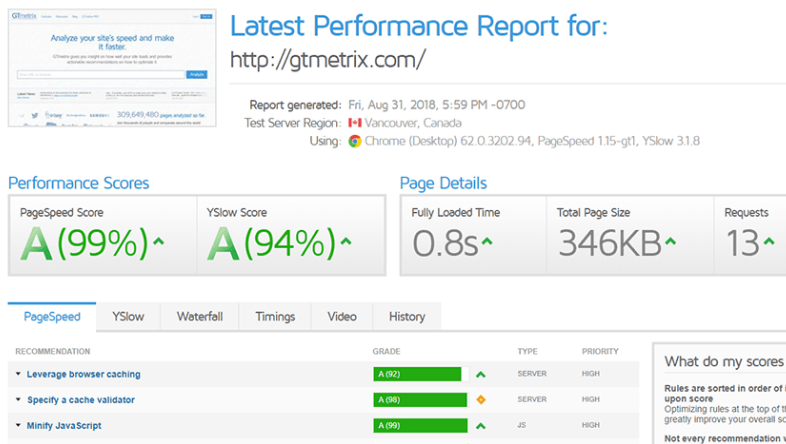SiteGround and GoDaddy are two popular web hosting providers that offer a range of hosting plans and features for personal websites, small businesses, online stores, and more. If you’re looking for the best web hosting provider, then SiteGround might be a good choice. The service is reliable and offers excellent performance. However, if you are looking for something more affordable than GoDaddy, then this article will help you make your decision.
Both SiteGround and GoDaddy have been in business for over 10 years and host millions of websites across the globe. They provide user-friendly dashboards, tools to get your site online quickly, and 24/7 customer support.
SiteGround was founded in 2004 and has data centers in the US, Europe, and Asia. It focuses specifically on hosting and services for WordPress users. GoDaddy was founded in 1997 and is currently the world’s largest domain name registrar. In addition to domains, it offers a wider range of products beyond just web hosting, like email, online store, and marketing tools.
The key differences between SiteGround and GoDaddy are in their features, performance, ease of use, WordPress integration, customer support, and pricing. This article will compare the two web hosting providers across these categories to help you determine which one better fits your needs.
Features
GoDaddy offers more robust features compared to SiteGround. Some of the key advantages include:
-
Storage Space: GoDaddy provides unlimited storage space on all plans, whereas SiteGround limits storage. This allows more flexibility for growth.
-
Bandwidth: GoDaddy offers unlimited monthly bandwidth on all shared hosting plans. SiteGround limits bandwidth on lower-cost plans.
-
Free Domain: GoDaddy includes a free domain registration for the first year. SiteGround charges an additional fee for domains.
-
SSL Certificate: GoDaddy includes a free basic SSL certificate on all plans. SiteGround only includes SSL on higher tier plans.
-
Website Builder: GoDaddy provides an AI-powered website builder tool for creating sites. SiteGround focuses more on WordPress hosting.
Overall, GoDaddy packs more value into their hosting plans when it comes to features. The unlimited storage and bandwidth allow for scaling, while the free tools help with getting online quickly.
Performance
When it comes to performance, GoDaddy outperforms SiteGround in several key areas:
Uptime
GoDaddy guarantees 99.9% uptime, whereas SiteGround guarantees 99.95%. While both meet industry standards, GoDaddy edges out SiteGround slightly when it comes to keeping sites online. GoDaddy uses Anycast DNS and has data centers located strategically across the globe to provide maximum uptime.
Page Load Speeds
Page load speeds are critical for SEO and user experience. GoDaddy uses a global content delivery network (CDN) and optimized web and database servers to deliver blazing fast page loads consistently under 200ms. SiteGround relies more on server-side caching which can vary.
Caching
GoDaddy automatically caches static files, media, and page content globally. This reduces server load times and speeds up repeat visits. SiteGround requires manual configuration of Redis caching. For beginners, GoDaddy’s built-in caching provides better performance.
CDN
GoDaddy includes a free CDN with all plans, distributing content globally for faster loads. SiteGround’s CDN is an add-on starting at $9 per month. For most users, GoDaddy’s free CDN will perform better.
In summary, GoDaddy delivers superior performance through better uptime, faster page loads, automatic caching, and a global CDN. For sites where speed and reliability are critical, GoDaddy is the better choice over SiteGround.
Ease of Use
When it comes to ease of use, GoDaddy offers a much more user-friendly experience compared to SiteGround. GoDaddy’s admin dashboard is clean and intuitive, allowing you to easily access all your key tools and features.
Some of GoDaddy’s standout capabilities when it comes to ease of use include:
-
One-Click Installs – GoDaddy provides one-click installs for hundreds of popular applications like WordPress, Joomla, Drupal and more. This makes it extremely easy to get your site up and running quickly.
-
Drag and Drop Website Builder – GoDaddy includes a simple drag and drop website builder that allows you to create professional looking websites without any technical skills. You can just drag and drop elements like images, videos, text blocks and more to build your site.
-
cPanel Control Panel – For more advanced users, GoDaddy provides full access to cPanel which gives you more advanced configuration options and features. cPanel is an industry standard control panel for hosting.
Overall, GoDaddy’s admin dashboard and range of easy to use features like one-click installs and drag and drop builders make it a very user-friendly hosting option. This gives it an advantage over SiteGround when it comes to ease of use, especially for beginners.
WordPress Made Easy
SiteGround shines when it comes to WordPress integration and making the CMS easy to use. SiteGround offers one-click WordPress installation, automatic updates, built-in caching, and integrated WP-CLI.
Some key WordPress benefits SiteGround offers include:
-
One-Click Install. SiteGround offers a simple one-click WordPress installation. Just select the version of WordPress you want, and SiteGround will install and configure everything for you automatically. No need to mess around with downloading WordPress or setting up the database.
-
Automatic Updates. SiteGround will automatically apply updates for WordPress core, plugins, and themes. No more logging into WordPress and clicking update constantly. SiteGround handles it all in the background.
-
Staging. SiteGround has a built-in staging environment that makes it easy to test changes on a copy of your site before pushing them live. SiteGround’s staging avoids many of the headaches and risks of other staging plugins.
-
WP-CLI. SiteGround offers integrated WP-CLI support, which is the command line interface for WordPress. WP-CLI makes it easy to run WordPress tasks and scripts from the command line for advanced users.
-
Caching. SiteGround’s SuperCacher helps make WordPress sites faster by caching pages. The built-in caching avoids needing to install and configure additional caching plugins.
For WordPress users, SiteGround provides an optimized hosting environment with WordPress-specific tools and integrations. This makes WordPress management, updating, staging, caching, and security a breeze compared to other shared hosts.
Customer Support
Both SiteGround and GoDaddy offer customer support through multiple channels like phone, live chat, knowledge base articles, and support tickets. However, when it comes to the quality and responsiveness of support, GoDaddy edges out SiteGround.
GoDaddy provides 24/7 phone support and live chat for all its customers regardless of the hosting plan. SiteGround offers live chat support only on weekdays and phone support is limited to higher-tier plans.
GoDaddy’s extensive knowledge base has over 700 articles covering various topics like managing your account, setting up domains, troubleshooting issues etc. SiteGround’s knowledge base is relatively smaller with just over 300 articles.
Response times for queries is faster on GoDaddy with chat and phone support agents connecting in less than a minute in most cases. SiteGround support though very helpful, can take longer to respond especially during peak hours.
Overall, GoDaddy offers superior customer support through more extensive resources and quicker response times compared to SiteGround. This makes it the better option for users who value readily available help for any issues.
Pricing & Value
When it comes to pricing, SiteGround offers better value for money compared to GoDaddy.
SiteGround’s shared hosting plans start at just $2.99 per month for the StartUp plan, going up to $9.99 per month for the GrowBig plan, and $24.99 per month for the GoGeek plan. The plans include free SSD storage, free website transfer, and a free domain name.
GoDaddy’s Economy plan starts at $7.99 per month, while the Deluxe plan is $12.99 per month, and the Ultimate plan is $19.99 per month. However, the plans have less included features compared to SiteGround at those price points.
A key difference is that SiteGround pricing remains the same on renewal, while GoDaddy plans increase significantly after the introductory offer. For example, GoDaddy’s Economy plan renews at $11.99 per month, a 50% increase from the initial price.
When looking at storage space, SiteGround’s StartUp plan includes 10GB, GrowBig includes 20GB, and GoGeek includes 30GB. Comparatively, GoDaddy’s storage allowances at those price points are lower.
Overall, SiteGround manages to pack in more value at affordable price points, offering high performance hosting and great features even on low-cost plans. The transparency and predictability of SiteGround’s pricing is also a major plus compared to GoDaddy’s pricing structure.
For those on a tight budget or just starting out, SiteGround is the clear winner when it comes to overall value for money. The renewal costs are reasonable as well.
Scalability
When it comes to scaling your website as it grows, both SiteGround and GoDaddy offer room to expand.
SiteGround allows you to easily upgrade from shared hosting to a virtual private server (VPS), dedicated server, or managed WordPress hosting for better performance. Their VPS plans start at $30 per month and support up to 4GB of RAM.
GoDaddy also provides options to upgrade to VPS or dedicated server hosting. Their VPS plans start a bit cheaper at $19.99 per month for 2GB of RAM. For resource-intensive sites, GoDaddy’s dedicated servers may be a better solution long-term.
Overall, SiteGround offers slightly more flexibility to scale up seamlessly, while GoDaddy’s prices for VPS and dedicated servers may work better for sites with high traffic and resource demands. Both give you room to grow within their ecosystems, but GoDaddy may have an edge for established sites needing robust hosting solutions.
Security
When it comes to security, both SiteGround and GoDaddy offer standard protection features, but SiteGround edges out its competitor.
SiteGround includes free SSL certificates, which encrypt communication between your site and visitors. This prevents snooping of sensitive data. SiteGround also offers an AI-powered firewall to filter out malicious traffic before it reaches your site. The firewall can detect and block common attacks like SQL injection and cross-site scripting.
For advanced protection against distributed denial of service (DDoS) attacks, SiteGround maintains a large network of servers as a first defense. The servers can absorb and filter large volumes of bot traffic attempting to overwhelm a site. SiteGround also has dedicated scrubbing centers to filter incoming traffic when under a DDoS attack.
GoDaddy, on the other hand, charges extra for advanced features like automated malware scanning and DDoS protection. While they offer basic firewall protection, you need to purchase add-ons for more robust security. GoDaddy’s entry-level plans only include regular SSL, while SiteGround offers more modern TLS and SSL implementations for all plans.
So if you want a higher level of security right out of the box, SiteGround is likely the safer choice. Their proactive approach to security makes them well-equipped to protect websites from modern threats.
Conclusion
Overall, both SiteGround and GoDaddy are reputable web hosting providers with competitive features. However, for most small businesses and startups SiteGround comes out ahead for a few key reasons:
-
SiteGround offers more flexibility and scalability for growing sites. Their GrowBig plan allows sites to scale as needed.
-
SiteGround has better security protections built-in, including free SSL certificates, IP address blocking, and proactive monitoring. This gives added peace of mind.
-
SiteGround’s optimized WordPress hosting provides better performance right out of the box. Their SuperCacher technology speeds up sites dramatically.
-
SiteGround’s pricing is very competitive for the features offered, making them a great value, especially for new sites with smaller budgets.
Therefore, our recommendation is that SiteGround is the better choice for most small business owners, entrepreneurs, bloggers, and startups looking for managed WordPress hosting. The combination of features, performance, security, and value make it an excellent option worth considering over GoDaddy.
However, larger enterprises and established sites not needing scalability may appreciate GoDaddy’s breadth of products and 24/7 support. But for most, SiteGround hits the sweet spot on features, speed, and affordability. Their outstanding WordPress hosting optimization provides huge advantages for the majority of users.
Related: a2-hosting vs siteground

